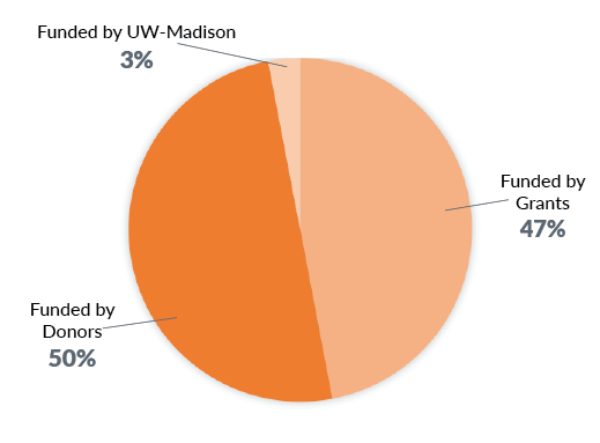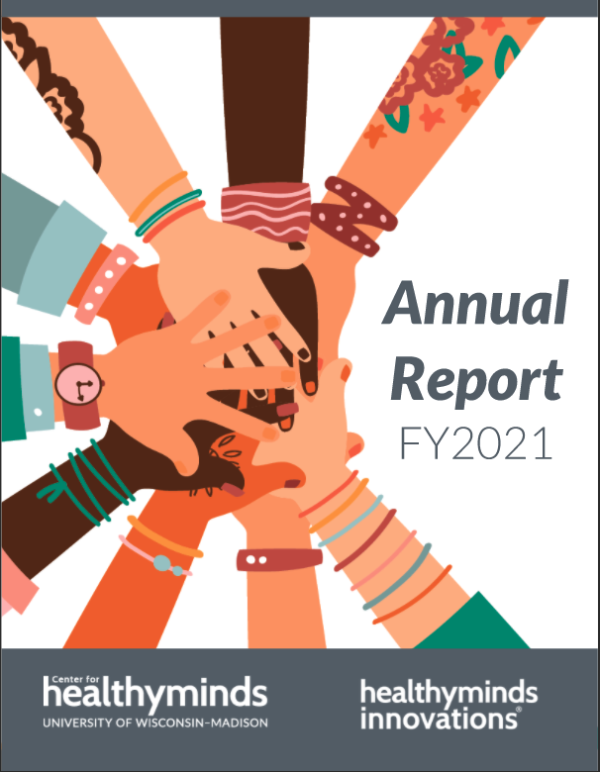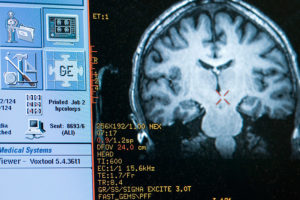Cultivate well-being and relieve suffering through a scientific understanding of the mind
A kinder, wiser, more compassionate world
What if our world were a kinder, wiser, more compassionate place? A place where we exercise our minds just like we exercise our bodies? A place where transforming your mind not only improves your own well-being, but cascades to the well-being of others in your community and around the globe?
We’re making this vision a reality at the Center for Healthy Minds at the University of Wisconsin–Madison. Faced with mental and physical health challenges at a global scale, we conduct rigorous scientific research to bring new insights aimed at improving the well-being of people of all backgrounds and ages.
Our research, rooted in neuroscience, comes down to one basic question: What constitutes a healthy mind?
To begin to answer this, we’ve investigated the science of emotions, contemplative practices and qualities of mind we suspect affect well-being, including attention, resilience, equanimity, savoring positive emotions, kindness, compassion, gratitude and empathy. The Center, part of one of the world’s top research institutions, benefits from cross-disciplinary collaborations in the arts and humanities, the physical and natural sciences, and the social sciences. We take pride in being a global hub for innovations in affective and contemplative neuroscience in addition to well-being across the lifespan.
Core Values
Conduct our work with rigor
We are dedicated to meeting our mission through high quality work, whether it’s research or other initiatives. We uphold these standards through continuous learning, respectfully challenging each other to improve, engaging in interdisciplinary collaborations, and intellectual humility.
Make an impact on the world
Impact is the grounding principle for all the research and work we do together. We pay attention to what our work means in the world, prioritize research and projects that have the greatest potential to promote well-being and relieve suffering, and strive to increase the reach of beneficial results of our work.
Cultivate a prosocial workplace
How we do our work together matters. We are committed to creating a workplace and community of collaborators that embodies our mission and vision. We practice this commitment by interacting with respect, kindness, compassion and gratitude toward each other and the resources we share.
Healthy Minds Innovations (HMI), the external nonprofit affiliated with the Center, takes the discoveries and insights gleaned from our research and translates them into tools to cultivate and measure well-being.
The Center and HMI actively collaborate to explore the effectiveness of the "Healthy Minds Framework" for understanding how human flourishing can be nurtured consisting of four pillars of well-being: awareness, connection, insight, and purpose. Research shows that each of these four pillars are related to specific networks in the brain and can be strengthened through meditation and other forms of mental training. Learn more about the framework in the peer-reviewed paper that appeared in the The Proceedings of the National Academy of Sciences (PNAS).
The Healthy Minds Framework is the core of the Healthy Minds Program, which is freely available to individuals and is also being actively studied as a well-being intervention.
We're an interdisciplinary team of researchers, scholars, staff, students and collaborators. Meet us.
Our Commitment to Diversity, Equity and Inclusion
Diversity, Equity and Inclusion are priorities in everything we do at the Center for Healthy Minds, including our choice of approaches to scientific inquiry, our partners, staffing and the policies and practices that contribute to the culture of equity in inclusion we desire.
In 2021, the Center for Healthy Minds formed a North American Equity Advisory Council, an external body of world class scholars and practitioners of color who provide advice and feedback to the Center's community on all facets of work through the lens of equity, inclusion and diversity.
Following are three ways the Center is committed to improving diversity, equity and inclusion.
Increase the Diversity of Staff and Leadership
Simply put, who leads and implements the work influences what work is done, how it is done and what meaning is made of the outcome of the work.
Every search for new staff, including faculty members at our Center, will include outreach to communities of color to broaden the talent pool for a more diverse staff. The composition of search committees must include persons of color. As well, the finalist pool of candidates for positions at CHM must also include persons of color.
Make the Research Inclusive
As a research center, our work must be clearly and intentionally inclusive in order to better understand the dynamics of well-being and the related impacts of our work across and within all communities. In addition to promoting and building strong DEI skills and knowledge among white staff at CHM, the Center is engaged in deliberate efforts to collaborate with more Black scholars and other people of color (including undergraduates, graduate students and post-doctoral Fellows) in order to include diverse perspectives and create an organization capable of building a kinder, wiser, more compassionate world for all.
Practice a Compassionate, Equitable Worldview
A kinder, wiser, more compassionate world starts with each person, and is deeply influenced by the culture and surroundings in which individuals exist. The Center and its staff continually examine and adjust who is within the Center’s circles of trust and influence, and how those circles affect the worldviews and decisions made by those at the Center. All members of the Center community must commit to actively educating themselves about issues of equity, inclusion and diversity, as well as engage in the deep inner personal work needed to challenge underlying biases and assumptions. Doing this deep personal work as individuals, and as a community, can contribute significantly to cultivating an environment where every member of the Center can flourish and bring their full, authentic selves to the work of CHM each day.
The Center is eager to collaborate with the next-generation of talented scientists advancing the science of well-being through research scholarship opportunities for underrepresented populations. Contribute to the fund here or contact Graham Washburn ([email protected]) with questions.

Our Funding
The Center relies on support from competitive federal grants and the generosity of donors and funders to study well-being and relieve suffering in the world.

Impact Reports
Track our progress, including the latest research findings and exciting new directions, in our FY2021 Annual Report
You can also find our FY2020 Annual Report and past versions of our Winter 2020 Impact Report. Fall, Summer and Spring.


